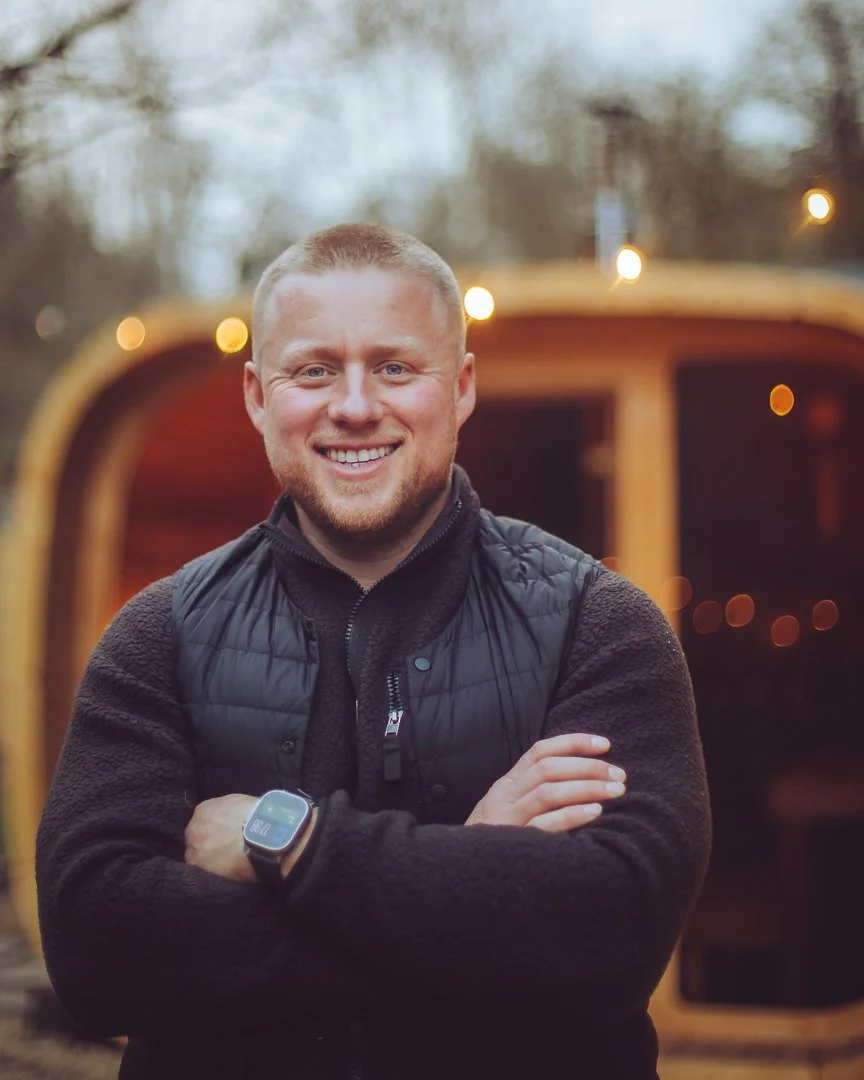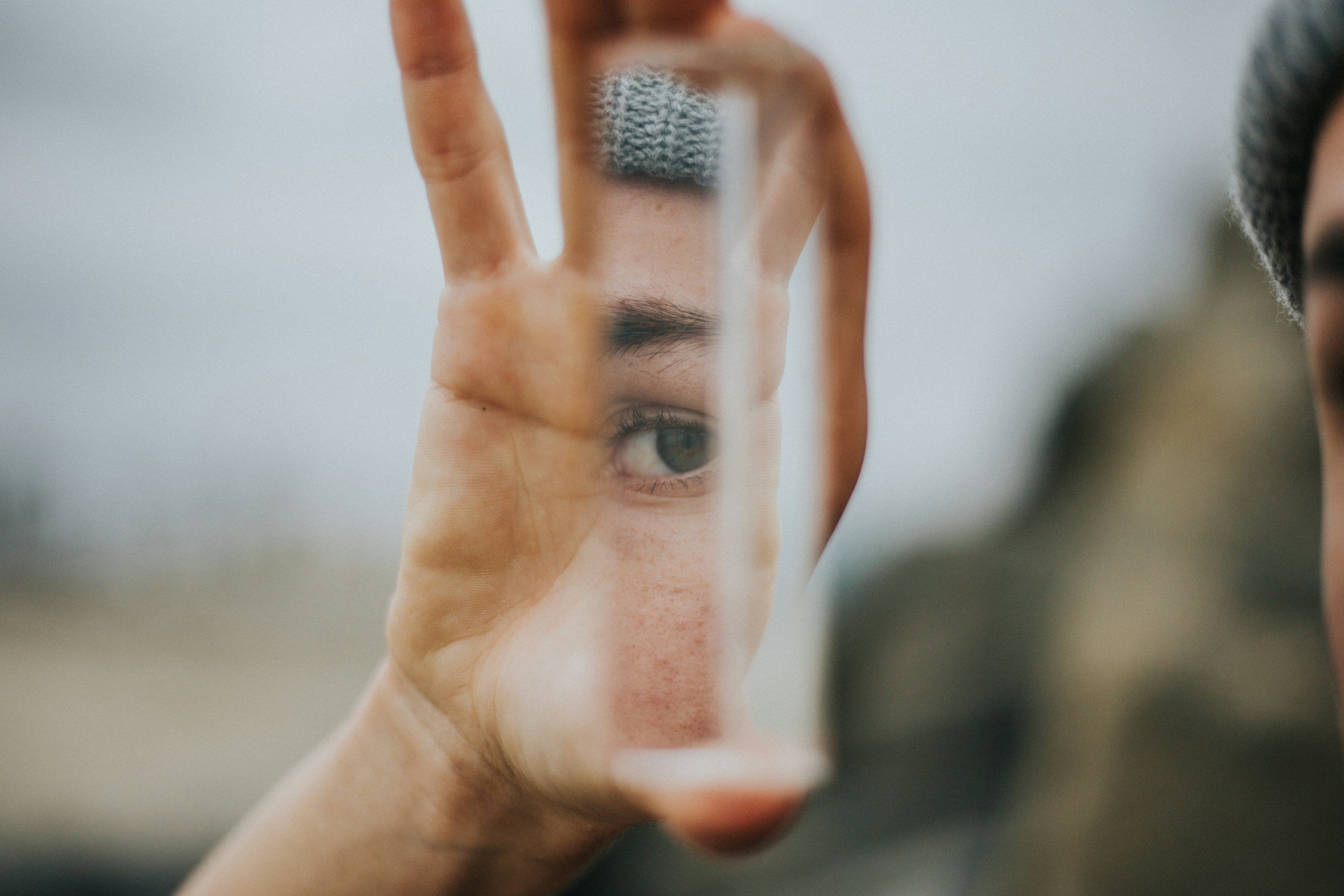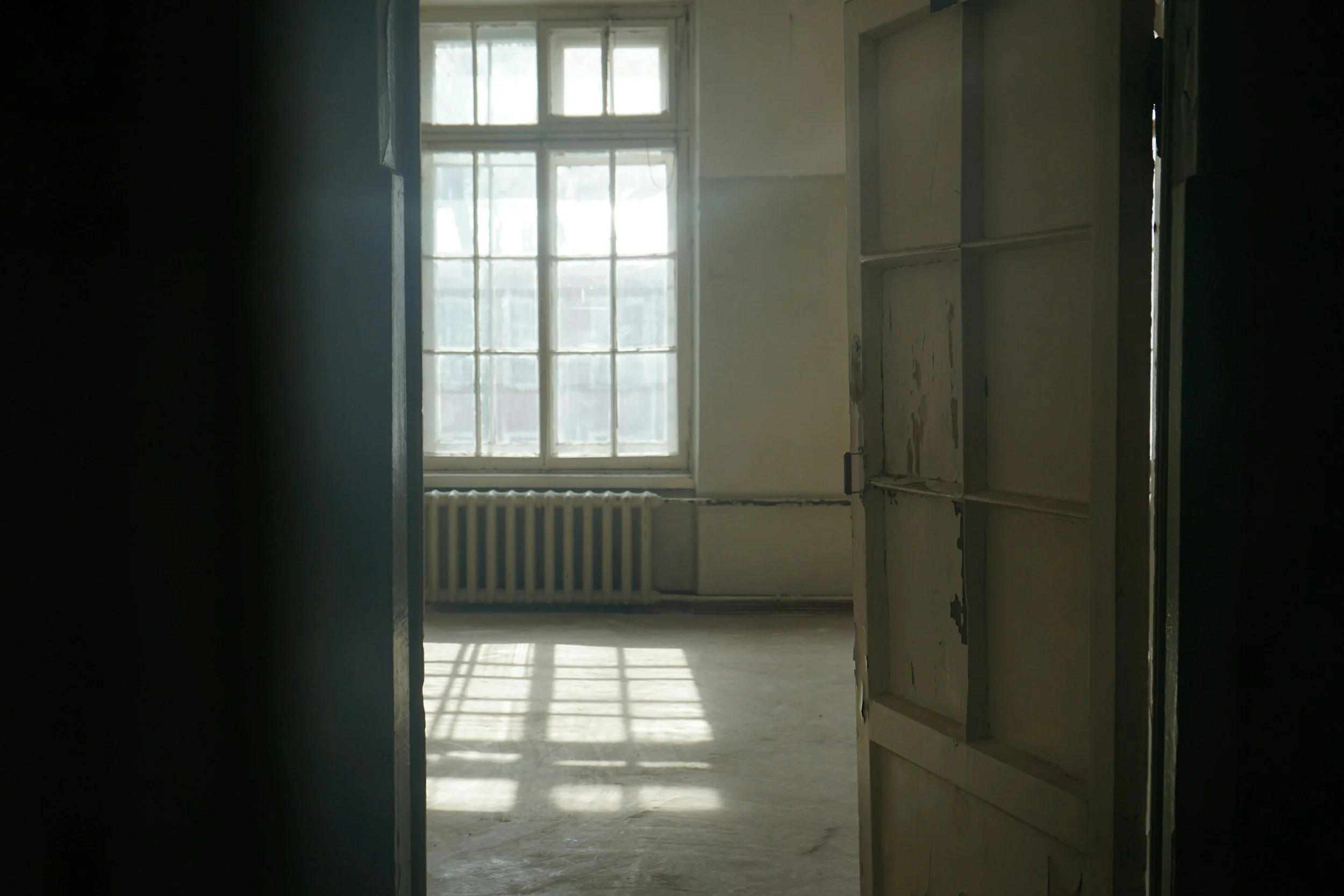From Me to 'Mum' - Does Motherhood Mean Losing Your Identity?
Picture this: you’re finally pregnant and expecting your first child after years of people extolling the virtues of having children. Suddenly, the narrative is flipped, it’s no longer the best thing to ever happen to you. Unfortunately, you are now doomed to live a joyless life of servitude to said child. It almost feels as though you have been duped, scammed into some sort of parenthood pyramid scheme from which there is no escape.
When we announced my pregnancy, at the age of 34 and after more than my fair share of baby pressure from friends and family alike, I assumed we’d be inundated with tales of how wonderful life was about to become, but instead of well-wishes we got warnings: ‘Sleep while you can,’ ‘Say goodbye to free time,’ ‘You won’t be able to do that when you’re a parent!’ It left us feeling quite deflated. Was parenthood really going to be so awful?
Becoming “Mum”
The thing no one warns you about motherhood is that it starts immediately. This may seem obvious, but you are propelled into the role of “Mum” as soon as that baby is in your arms. There is no time to adjust, no cooling off period. You are Mum…for better for worse, in sickness and in health, for richer for poorer (definitely poorer).
As I was being wheeled into recovery after delivering my daughter via caesarean section, I was riding that postpartum high. I am woman, goddess, divine feminine, creator of life, hear me roar, etc. Unfortunately, that euphoria was short-lived. As soon as I was unceremoniously parked up, the midwife looked up at me and said, ‘Okay, Mum, let’s wait for that anaesthetic to wear off, then we’ll take you back to the ward.’ Mum. I am Mum now. Not Vicky, not the name that was quite clearly on my notes. I am Mum. Well-intentioned or otherwise, this marked the start of what would be a gradual erosion of my sense of self, within the hospital walls and beyond.
Something I should mention is that the women in my family on my mother’s side have a history of not reacting particularly well to anaesthetics (something my mother only opted to share with me after the incident I’m about to describe). Whilst in recovery, I could feel myself shaking, accompanied by rapidly-worsening nausea. I was quickly informed this was totally normal and to be expected, but as I got back to the ward, things started to take a turn for the worse…and fast. Sometime later (I am unsure how long as I drifted in and out of consciousness), my legs were shaking as if I was convulsing, I had a piercing headache, and my sick bowl was at capacity. Quite simply, I felt like I was dying - something I conveyed to the maternity care assistant, then the midwife, then the senior midwife, then the registrar, and finally the consultant, who looked at me disparagingly and insisted, ‘You need to pull yourself together to look after your baby.’
My baby was being looked after by my husband who, as her other parent, was fully capable of doing so, but this was my purpose now, my priority, to be Mum, to look after my baby; not myself. It was at that moment that I stopped fighting and passed out, waking 9 hours later connected to all sorts of drips and monitors - it turns out that just “pulling myself together” wasn’t enough.
We ended up spending a total of four days in hospital due to a series of complications. My daughter was absolutely fine, it was me who was struggling - with infection, with breastfeeding, with the transition to motherhood. The infamous day three baby blues hit when we were still on the ward and I sobbed for what felt like hours on end. We were finally discharged on day four and we made our way home, our bundle of joy in tow.
The postpartum trenches
When your child is born, you are immediately thrust into survival mode (or the newborn bubble as it is more affectionately referred to). Even though you have been preparing for this moment for months, years even, it is still an enormously steep learning curve, the severity of which can take a toll on your mental health. The first few days were a blur of midwife visits, nappies, bottles, and a lot of tears (both my daughter’s and mine). By the end of the first week, I was broken. I couldn’t breastfeed my baby (despite many attempts and the help of three separate midwives), I couldn’t pump to produce any milk for my baby (despite endless hours of trying to do so), and whenever she cried (which was very often as she was just days old), I was filled with an indescribable dread and immediately burst into tears myself. I felt like a failure. I had failed at the one job I was meant to know how to do instinctively. I had failed at being Mum. Add to that mix, the searing pain of trying to recover from major surgery and I was teetering, like many women do, on the precipice of postnatal depression (PND).
PND is all too common and affects 1 in 10 women and birthing people within a year of giving birth, as was the case with Phoebe who struggled to get the support she needed after the birth of her now 18-month-old daughter. ‘I have really had to battle to get help with my mental health. In December 2023, after four sleepless months and a lot of tears and intrusive thoughts, I went to my GP. Instead of offering any actual support or signposting, the (male) doctor disregarded my concerns, informing me that, and I quote, “All women go mad at Christmas.”’
‘Speechless, I left and had to call my husband to come and pick me up as I was absolutely heartbroken. I ended up getting the help I needed via a different route but the experience made me question why it is so hard to get help with postpartum depression.’
‘I love my daughter unconditionally and she has undoubtedly made me a better person, but I look at her sometimes with sadness as the cracks appear in my relationship and mind. If I hadn’t become a mum, would my relationship and mental health be better? Would I be kinder to myself?’
Phoebe’s story is sadly not unique. Thankfully, I was able to narrowly avoid PND, but I was left with this feeling of emptiness or perhaps otherness. I didn’t feel like “me” anymore, but the idea of being a mum was also very alien. This vanishing sense of self is a sentiment shared by many new mums. A study conducted by Peanut and Tommee Tippee revealed that, of the 2,000 British mothers surveyed, 62% said they feel like they have lost a part of their identity since becoming a mother.
Parenthood and the patriarchy
There is no denying that the transition to parenthood looks different for men and women, be that physically, emotionally, or financially. Statistically, women have to sacrifice more to have children, especially when it comes to their careers. According to the Institute for Fiscal Studies, from June to August 2022, 27.6% of women didn't work because of family commitments, compared to 7.4% of men. Even in relationships where women earned more than men, 13% of new mums left the workforce after having a child, compared to just 3% of their male counterparts.
Women are subject to what feels like forced martyrdom in a society that praises women’s sacrifice and views it as normal, to be expected. So much so that prioritising yourself in any way feels selfish and leads to the dreaded “mum guilt”, having to justify any self-care or personal time as we find ourselves endlessly asked, ‘Who is watching the baby?’ ‘Is Daddy babysitting?’ While our male partners do not receive the same interrogation. Once again, the priority is being a mother, everything else is a distraction.
And if that wasn’t enough, we are expected to go through this life-altering, often traumatic event and immediately shrink back down to our pre-pregnancy selves, to squeeze the body that carried and birthed a whole human into our old jeans. The pressure to “bounce back” is insidious and relentless. Shortly after I gave birth, friends and family were quick to comment on how good I looked, specifically on how much weight I had lost, however, the reason behind this weight loss was anything but positive. My mental health was so poor postpartum that I was struggling with my appetite, having to force myself to eat and taking no enjoyment in food - or much else for that matter. Regardless of the cause, weight loss is always seen as positive. It would seem that whilst the “dad bod” is celebrated and even coveted, a “mum bod” is something to be ashamed of, something that needs to be fixed - as quickly as possible.
The eternal (or should that be maternal?) juggling act
Social media sells us this image of the ideal mum: a lycra-clad Wonder Woman who is up at 5 AM for a run, cooks every meal from scratch, has an immaculate house, and never has baby porridge in her hair or snotty muslins in her pocket. She doesn’t struggle with work-life balance or finding time for herself, because she is efficient and organised - and you can be too with this diary/supplement/workout plan!
The reality for a lot of mothers is very different. Sometimes it feels like you are living for nap times (which makes you feel incredibly guilty for not enjoying spending time with your child) or counting down the minutes until your partner gets home so you can hand over said child (cue more guilt). You wait for the all-too-rare pockets of personal time where you can shower, eat, or scroll mindlessly on your phone and, before you know it, time’s up and it’s time to be Mum again.
Without time to ourselves, motherhood can feel like Groundhog Day (especially in the early days). Days bleed into one; a blur of feeds, nappy changes, and the odd baby group. Without time to ourselves, we start to lose ourselves, our identity.
A tale of two mothers
This loss of identity that seemingly comes hand in hand with parenthood has meant that more and more people (myself included) are waiting until later in life to have children. Could it therefore be argued that this is why parenthood feels like such a big adjustment to Millennials and Gen Z? Where our parents and grandparents would have started their family in their 20s, we are giving ourselves another 10-15 years to get used to our routines, our independence. Would we be better off starting young?
‘Having my first child at 19 wasn’t something that I’d planned to do but it ended up being a transformative experience for me. I don’t know who I’d be without my daughters.’ recalls Sophia, 30-something mum to two girls, 11 and 14. However, having children at such a young age came with its challenges.
‘I was forced to grow up very quickly and my lifestyle completely changed, but as I was so young, I didn’t have a plan for life or any career goals, so it didn’t necessarily feel like my life was put on hold or that I lost my identity.’
‘Nothing could have prepared me for how much work it takes to raise a child. I have made mistakes along the way but I grew up with my daughters and learned about life as they did. My children completed me, gave me a reason to live, and for that, I am eternally grateful.’
Sophia’s mum, Jane, 63, raised Sophia and her sister on her own whilst also working a part-time job. ‘As a single mum, I had no time for myself between work, school runs, and the general household chaos. As the girls got older and became more independent, I was able to carve out more time for myself, but it felt like I was biding my time, waiting for the holy grail of the “empty nest” when I could finally find myself again. However, when they did leave home (one daughter to start her family, the other off to university), I realised I was all alone and fell into a deep depression. The easy, stress-free life I had been looking forward to was actually very lonely and alienating. Thankfully, I was able to rebuild my enthusiasm for life and enjoy the time I had to myself, but it took a lot of adjustment. No one tells you just how empty that nest feels.’
Making the most of motherhood
New mum or empty nester, starting young or waiting until later. Whatever motherhood looks like for you, it’s okay (and important) to grieve the woman you were before becoming a parent. Life won’t go back to “normal” but there is a “new normal” where both parts of you can coexist. It’s human nature to evolve, whether that’s due to having children or not, to fight that change is futile and could mean you miss out on the best bits of life, waiting for that moment when you can “be yourself” again.
As I write this, I am just over 10 months into being a mum and, whilst I can’t claim to be a veteran just yet, I can confirm it isn’t all doom and gloom. You’re not going to be able to drop everything to go to that gig tonight or book that last-minute trip abroad with your friends, but you can (and should) make time for yourself. That may look like a night away while the grandparents babysit, a long soak in the tub with a book, or evenings spent writing about motherhood for The Everyday.
Written by Victorianna Balaktsoglou
Victorianna Balaktsoglou is a marketing and communications professional based in Milton Keynes but hailing from much sunnier Athens, Greece. A keen linguist and craft enthusiast, she is passionate about body positivity, gender equality, football, and good food.





